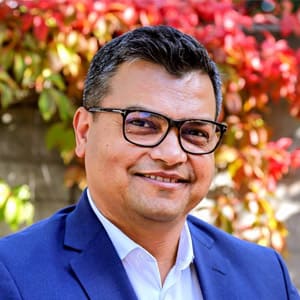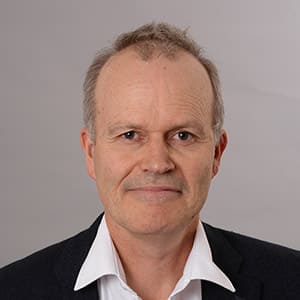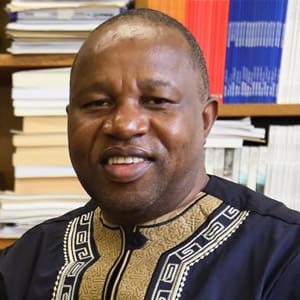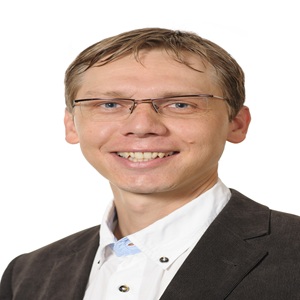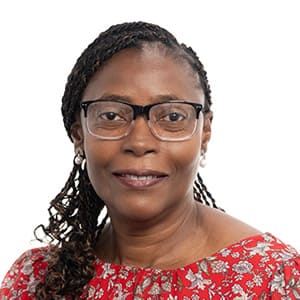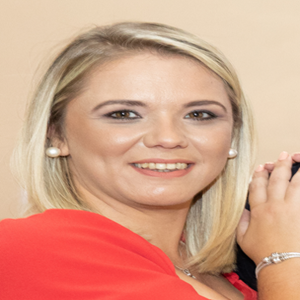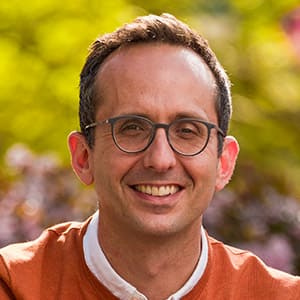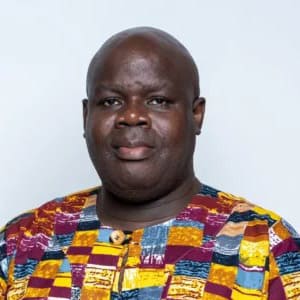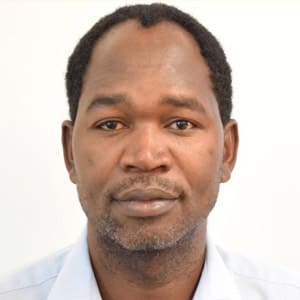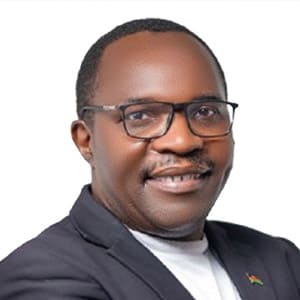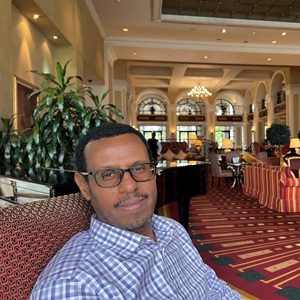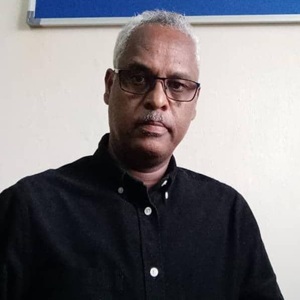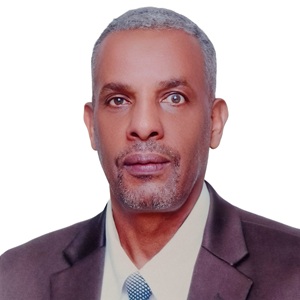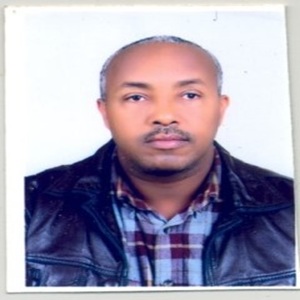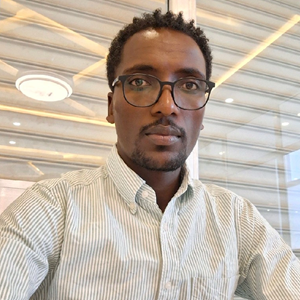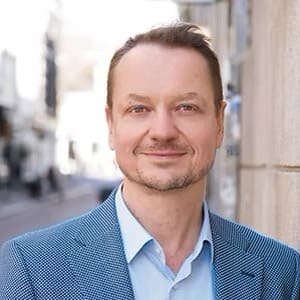University of Oslo
Professor Dan Banik
Dan Banik is professor of political science, director of the Oslo SDG Initiative at the Centre for Development and the Environment, and affiliate professor at Faculty of Medicine, University of Oslo. He is also Academic Director of the Democracy Hub at Circle U. European University Alliance and Extraordinary Professor at the University of Pretoria. His books include Political Transition, Poverty, and Inclusive Development in Malawi: The Democratic Dividend; Poverty and Elusive Development; and Starvation and India’s Democracy. He is the host of the In Pursuit of Development podcast with listeners in 160 countries.
Professor Tore Rem
Tore Rem is director of the interdisciplinary initiative UiO:Democracy at the University of Oslo and Professor of literatures in English. He has published extensively on a number of democracy-related issues as well as on world literature.
Dr. Johanna Sofia Adolfsson
Dr. Johanna Sofia Adolfsson is a Postdoctoral Fellow at the Centre for Development and the Environment (SUM) at the University of Oslo (UiO). A cultural psychologist by training, she holds a PhD in cultural and societal psychology from UiO. Her research critically examines the dominant role of Western psychological theory and practice in global development policy and intervention. Since 2016, she has conducted extensive fieldwork in Malawi, investigating how rural communities—often positioned as “beneficiaries” of global development interventions—navigate and negotiate the development practices and discourses shaping their local realities. Her research explores the governance, discourses, challenges, and resistance surrounding SDG implementation. Adolfsson is part of the CoRE – The Politics of Sustainable Development, the Oslo SDG Initiative and its affiliated research groups, Poverty Reduction and the 2030 Agenda for Sustainable Development and Governance for the SDGs (SustGOV), led by Professor Dan Banik at SUM. She is also a core member of the Centre for Sustainable Development (CSD) at Addis Ababa University.
Tyler Barrott
Tyler Barrott is a researcher and senior communications advisor at the Centre for Development and the Environment (SUM), University of Oslo. A historian by trade, Barrott’s research focuses on energy development in East Africa, with a particular emphasis on large-scale hydropower and oil and gas projects in Tanzania. In particular, he examines the role of Western actors—such as aid agencies, energy companies, and environmental activists—in shaping these initiatives, as well as the tension between global environmental norms and the sovereignty of African states over the development of their natural resources. Barrott recently delivered his PhD chronicling the Pangani Falls and Lower Kihansi hydropower projects in Tanzania, where he explored the Tanzanian-Norwegian relationship and examined critical project issues ranging from water conflicts to endangered species.
University of Pretoria
Professor Maano Ramutsindela
Professor Maano Ramutsindela is the UP-UCT Future Africa Research Chair in Sustainability Transformations, and Professor of Human Geography at UCT’s Department of Environmental and Geographical Science. He is the co-lead of the Africa-Europe Cluster of Research Excellence on the politics of sustainable development. A Canon Collins Scholar, Ramutsindela holds a PhD in Geography from Royal Holloway, University of London, and a Master’s in Geography from the University of the North (Turfloop). He has served as Dean of the Faculty of Science at UCT, is a Fellow of the Society of South African Geographers and a Member of the Academy of Science of South Africa. He has held visiting fellowships at Harvard University and the University of Western Australia, and was Distinguished Chair at Macalester College and Inaugural Visting Professor at the University of Geneva. His current research focuses on socioecological relations and the political ecology of peace parks. He is the author of Transfrontier Conservation in Africa: At the Confluence of Capital, Politics, and Nature and co-editor of The Violence of Conservation in Africa (Edward Elgar, 2022).
Professor Heinrich Bohlmann
Prof. Heinrich Bohlmann is currently Associate Professor in the Department of Economics at the University of Pretoria where he specialises in the development and application of dynamic computable general equilibrium models for practical policy research. His academic and contract work has mainly focused on macroeconomic planning, sectoral impact analysis, energy and environmental policy, and labour market topics. Prof. Bohlmann is also currently Research Director of the Macro-Micro Modeling Group at the Partnership for Economic Policy and serves on the Council of the Economic Society of South Africa where he was previously elected as President for the 2021-2023 term. He holds a PhD in Economics from Monash University in Melbourne, Australia.
Professor Margaret Chitiga-Mabugu
Prof. Margaret Chitiga-Mabugu is an economist and current Dean of the Faculty of Economic and Management Sciences at the University of Pretoria. She was previously the Director of the School for Public Management and Administration in the Faculty. Before she re-joined the University of Pretoria, she was the Executive Director of Economic Performance and Development at the Human Sciences Research Council.
Prof. Chitiga-Mabugu conducts research on economic developmental issues and is mainly interested in analysing the impact of policies on society and the economy at large.
She serves on several advisory councils and networks, including the Stockholm Environment Institute’s Science Advisory Council, the Academy of Science of South Africa’s Standing Committee on Reduction of Poverty and Inequality, the Southern Africa–Towards Inclusive Economic Development (SA-TIED) programme, and the Partnership for Economic Policy (PEP) network.
Professor Roula Inglesi-Lotz
Prof. Roula Inglesi-Lotz is the SARChI Chair in Just Energy Transition, a bilateral chair between the University of Pretoria (South Africa) and RWTH Aachen University (Germany), funded by the NRF. She is a Professor of Economics at the University of Pretoria, where she has been based since 2008, progressing from Lecturer to Full Professor in 2021. Her research lies at the intersection of energy economics, environmental economics, economic development, and econometrics, with more than 100 peer-reviewed journal publications and contributions to international handbooks and reports. She has supervised numerous postgraduate and doctoral students, and her mentorship extends to international collaborations and leadership in capacity development. Prof. Inglesi-Lotz is an NRF-rated researcher (C1) and has received multiple awards, including the SANEA Upliftment through Education Award (2024) and recognition as Distinguished Young Woman Researcher in Humanities and Social Sciences (2017). Internationally, she serves as Vice President for Membership and Regional Relations of the International Association for Energy Economics (IAEE) and sits on editorial boards of leading journals such as Energy Economics, Energy Policy, and Economics of Energy and Environmental Policy. She has also played an active role in the South African Association for Energy Economics (SAAEE), serving as its founding President (2018–2022). Through her research, teaching, and advisory work, Prof. Inglesi-Lotz contributes to shaping energy policy, just transitions, and sustainable development in Africa and beyond, with an emphasis on bridging economic research, institutional quality, and societal impact.
Dr. Jessika Bohlmann
Dr. Jessika Bohlmann is currently appointed as a Research Specialist in the Faculty of Economic and Management Sciences at the University of Pretoria (UP), and Research Project Manager of the SARChi Chair Just Energy Transition at the Department of Economics at UP. She is further contracted as Managing Editor and Special Issues Editor of Elsevier’s Energy Policy journal and as Research Consultant for the Modelling and Policy Impact Analysis group at the Partnership for Economic Policy (PEP). She is the current Vice-President of the South African Association for Energy Economics (SAAEE). Previously, she also completed contract work for the United Nations Development Programme (UNDP) as an Energy Data Specialist.
Dr. Bohlmann’s academic and contract work has mainly focused on energy and environmental policy, and sectoral economic impact analysis using both computable general equilibrium and econometric modelling methods. Dr. Bohlmann holds a PhD in Economics from the University of Pretoria, and a Bachelor of Economics from Monash University. She has also completed an Advanced Certificate in Emerging Markets and Risk Analysis from Fordham University, Certificates in Regional and Dynamic General Equilibrium Modelling from the Centre of Policy Studies in Melbourne, Australia, and the Dynamic GTAP course at Purdue University in the United States.
Professor Wesley Rosslyn-Smith
Prof Wesley Rosslyn-Smith is Associate Professor at the University of Pretoria and Director of the South African Centre for Industry and Technology (SACIT), a World Economic Forum Centre for the Fourth Industrial Revolution. His research and teaching focus on corporate strategy, turnaround management, and business analytics, with a strong transdisciplinary approach that connects business, technology, and society.
He also lectures at the Gordon Institute of Business Science (GIBS) and contributes internationally through leadership roles with TMA-SA NextGen, the TMA NextGen International Committee, and the III NextGen. At UP, he leads the Centre for the Future of Work (CFoW), driving projects on digital transformation and the future of employment. Alongside his academic work, he advises organisations on turnaround and strategy, applying research insights to complex real-world challenges.
Stellenbosch University
Professor Willem Fourie
Prof. Willem Fourie leads the Policy Innovation Lab. He is an Alexander von Humboldt Fellow and has served as an expert advisor to the African Union, and has worked with the United Nations, European Union, OECD and national government departments and founded one of the world’s largest and most intelligent platforms focused on evidence-informed policy advice. He also co-founded a start-up that uses natural language processing to analyse policy-relevant information and has prior experience working with a global technology company. His research centres on the human dynamics that enable the achievement of ambitious policy agendas, especially through technology. In 2023, Routledge published his monograph that explores a realistic and evidence-based approach to leadership that could support policy innovation.
Dr. Itai Makone
Itai Makone is Social Science and Policy Innovation Researcher at the Policy Innovation Lab at Stellenbosch University. Itai’s PhD in Political Science focused on Political Risk Analysis in a hybrid political regime analysing the case of Zimbabwe. She has a wealth of experience in academia as a lecturer, at Stellenbosch University and a researcher at HUMA, University of Cape Town, as an economist for the Ministry of Industry and Commerce in Zimbabwe, and as an individual consultant for various NGOs. Her research interests include using political risk analysis, evidence-based policymaking, AI ethics and uses in government, public policy, and the Sustainable Development Goals.
University of Malawi
Dr. Boniface Dulani
Boniface Dulani is an Associate Professor of Political Science in the Department of Politics and Government at the University of Malawi and Director of Surveys for the Afrobarometer. His main areas of research and publications are in the fields of Democracy and Governance; Elections; Presidential Term Limits; Political Economy Analysis; public health; participation of women and youth in politics; minority rights; livelihoods and development; and survey research.
Professor Michael Chasukwa
Michael is a Professor of Political Science based at the University of Malawi in the Department of Politics and Government. He holds a PhD (Political Economy and Development Studies) from the University of Leeds, MA (Political Science) and BA (Public Administration) from the University of Malawi. He is the incumbent Head of Department. Michael serves as an Extraordinary Professor at the North West University and an Adjunct Professor at the University of Addis Ababa. In 2022, Michael was a Postdoctoral Fellow at the University of Leeds, United Kingdom. His research and teaching interests include political economy, development cooperation, development politics, institutions, public policy, land, local governance and agricultural policies as they relate to youth and development. Currently, He has published in international peer-reviewed journals on matters related to development and governance from different perspectives. Michael has published in Development Policy Review, Journal of Public Affairs, Journal of Development Effectiveness, Africa Review, and Journal of Asian and African Studies Journal of Peasant Studies, Agrarian South: the journal of Political Economy, Insights on Africa and International Journal of Public Administration. He has presented papers at international and local conferences in the areas of political economy of development. Michael has worked with the World Bank, ActionAid, World Vision, Malawi Government and FHI360 as a consultant on governance and development issues.
Professor Happy Kayuni
Happy Kayuni is a Professor of Political Science in the Politics & Government Department at the University of Malawi, holding a PhD in Political Science from the University of the Western Cape. Presently, he serves as the Executive Dean of the School of Law, Economics, and Government at the University of Malawi. His primary expertise lies in Political Governance, Public Administration and Management, and Gender and International Development Policy. Previously, he worked as a Programme Manager for Women’s World Banking-Malawi Affiliate. In addition to his doctoral qualification, he earned a Master of Public Administration degree (MPA) with Distinction from the University of Stellenbosch in 2004. Throughout his academic journey, he garnered several accolades, including the South African Embassy Study Bursary Award, Stellenbosch’s Postgraduate Merit Bursary Award, School of Public Planning and Management’s Student of the Year Award (DUK-Student 2005), and the esteemed PricewaterhouseCooper Award for being the best MPA student.
Addis Ababa University
Dr. Aklilu Amsalu
Dr Aklilu Amsalu is an Associate Professor of Geography and Head of the Center for Sustainable Development at Addis Ababa University, Ethiopia. His expertise encompasses climate change impacts, adaptation responses and natural resources management with a focus on assessing vulnerabilities, evaluating the effectiveness of adaptation measures, and the integration of climate finance and policy into sustainable development initiatives. In addition, he explores the dynamics of energy security and green transitions, and their implications for economic growth, environmental sustainability, and resilience to climate change. Dr Aklilu has been actively involved in numerous research and evaluation projects, identifying best practices, measuring outcomes and ensuring alignment with both national and global development frameworks.
Dr. Abiy Zegeye
Dr. Abiy Zegeye is an Assistant Professor at the University of Addis Ababa, he holds a PhD in Animal Sciences from the University of Maryland-College Park. His interests are in the intersection of GHG emission from livestock sector, climate change and disaster risk reduction is the primary area of research. The livestock sector is perhaps the largest contributor of GHG emission in Ethiopia. It is also intricately linked to the lives and livelihoods of the vast majority of rural communities. At the same time, climate-induced hazards, such as drought and floods, are major causes of disasters accounting for the majority of loss and damage to the lives and livelihoods of communities. One mitigative measure to reduce the occurrence these disasters requires reducing GHG emissions from the source.
Dr. Setargew Kenaw
Dr. Setargew Kenaw is an Associate Professor of Philosophy at the Center for Sustainable Development, College of Social Sciences, Addis Ababa University. He is also a Research Associate at Makerere Institute of Social Research, Makerere University. His research interests include philosophy of science, methodological issues in the social sciences, science and technology studies, genealogies of development theories, classical Ethiopian education, and spirit mediumship beliefs and practices.
Professor Tebarek Lika Megento
Prof. Tebarek Lika Megento is a Full Professor of Development Geography at Addis Ababa University, with expertise in urban planning and sustainable development. His research explores the social, economic, and spatial dynamics of rapidly changing regions—from the everyday life of city neighborhoods to the vibrancy of rural marketplaces. He has published extensively, including more than 50 journal articles, a book, and several edited volumes, and has led studies on urban governance, transport systems, informal economies, industrial clusters, and public health. Alongside his academic work, Prof. Tebarek has held leadership roles such as Department Chair and President of the Guraghe Research and Advisory Organization. His career has been shaped by international collaboration, with teaching and research appointments at leading institutions across Europe, including the University of Essex (UK), Bayreuth International Graduate School of African Studies (Germany), KU Leuven(Belgium), Umeå University (Sweden), Paris Nanterre (France), University College Dublin (Ireland), and Charles University (Czech Republic), where he was a visiting professor in 2024–2025. Currently, his research focuses on sustainable urban development, the governance of urban spaces, and strategies to strengthen both economic and environmental resilience in rapidly urbanizing contexts.
Dr. Teferee Makonnen Kassa
Dr. Teferee Makonnen Kassa is an Associate Professor of Population & Development Studies at Addis Ababa University, and holds a PhD in Socioeconomic Development Planning and Environment. His interests include, migration and return migration, refugee and displacement studies, resettlement, urbanization and urban expansion, urban livelihoods, Population-Environment-Development Nexus.
Dr. Debebe Ero
Dr. Debebe Ero is an Assistant Professor at Addis Ababa University and has a PhD in Social Work and Social Development. His research interests are, resilience focusing on women, children, families, and sustainable development of communities within their ecosystem. He is currently engaged in street children and Human Capacity Development projects.
Dr. Tirsit Sahledengil Beyene
Dr. Tirsit Sahledengil Beyene is a distinguished researcher and assistant professor at Addis Ababa University, Ethiopia, with a decade of experience in national and international research initiatives. She holds a PhD in Social Anthropology from Addis Ababa University and has enhanced her expertise through specialized training at esteemed universities in Norway, France, and Germany. Tirsit has served as a lead researcher and team leader on various high-quality projects, collaborating with organizations such as the United Nations World Food Program, UN Women, the World Bank, to address critical issues like gender, conflict, social cohesion, climate change and migration. Her research interests, reflected in her publications, focus on gender norms, politics, and social cohesion, and she has conducted studies across various regions of Ethiopia. Currently she is post-doctoral fellow at center of sustainable development Addis Ababa university.
Dr. Bekele Wegi Feyisa
Dr. Bekele Wegi Feyisa is a Postdoctoral Fellow at the Centre for Sustainable Development at the University of Addis Ababa and Assistant Professor in Agricultural Economics at Haramaya University. He holds a PhD in Agricultural and Development Economics and has strong theoretical knowledge and practical experience in teaching and conducting research across a broad range of topics in agricultural and development economics. He has led and contributed to research and consultancy projects in areas such as project monitoring, impact evaluation, market assessment, agricultural technology adoption, sustainable agricultural practices, and value chain, among others. Through his work, he has gained valuable expertise in conducting policy-relevant research, covering the entire value chain—from product conception to final consumption and disposal. His experience and research interests also extend to climate change mitigation, adaptation, and resilience among farming households; impact assessment; monitoring and evaluation; food systems transformation; agricultural transformation and structural change; poverty reduction; and sustainable livelihoods.
University of Nairobi
Karuti Kanyinga
Politics of SustainabilityUCLouvain
Professor Sandy Tubeuf
Sandy Tubeuf is a full professor of health economics at the Université catholique de Louvain (UCLouvain) in Belgium. Prior to her appointment at UCLouvain, Sandy held positions at the University of Leeds and the University of York in the UK. She received her European PhD in Economics from the Aix-Marseille School of Economics in 2008. Since July 2020, she has held a Circle U international Chair in Global Health.
Her research portfolio includes substantial empirical and theoretical work on the measurement and understanding of health inequalities, and the importance of family background and individual lifestyles for health and healthcare outcomes. She has conducted research in France, Belgium, Nigeria, Benin, and Bangladesh, focusing on individual preferences for health and healthcare choices, as well as the evaluation of healthcare interventions in public health and the sustainability of resource allocations in healthcare.
Her research has been funded by a range of bodies, including the UK National Institute for Health Research (NIHR), the UK Economic and Social Research Council (ESRC), the Belgium Research Council (FNRS), the EU Commission, and the French Ministry of Health Research. She received a competitive Leverhulme Research Fellowship in 2015 and was nominated for a University of Leeds Women of Achievement Award in the same year.
Sandy has published more than 90 peer-reviewed publications in economics, health economics and applied health research in journals including Health Economics, World Development, The Lancet, The BMJ, and Nature Scientific Reports.
Sandy also serves, and has served, on various advisory panels offering funding recommendations in Belgium, France, the Netherlands, the UK, Luxembourg, Finland, and the EU (ERC, H2020, Horizon Europe).
Utrecht University
Professor Frank Biermann
Frank Biermann is a research professor of Global Sustainability Governance at the Copernicus Institute of Sustainable Development, Utrecht University, The Netherlands. He has authored or co-edited 20 books and published over 250 articles and book chapters. Among other functions, he founded and served as first chair of the Earth System Governance Project, a global transdisciplinary research network. Currently, he concludes a 2.5 million EUR project on the impacts of the Sustainable Development Goals, funded by an Advanced Grant from the European Research Council. In 2021, Biermann received the Distinguished Scholar Award in Environmental Studies from the International Studies Association. In 2024, he was honoured with the Volvo Environment Prize “for defining new pathways for international environmental governance in a period of global change”.
Dr. Marjanneke Vijge
Dr. Marjanneke J. Vijge is Associate Professor at the Copernicus Institute of Sustainable Development, Utrecht University. Her work focuses on multilevel governance of trade-offs between sustainability goals and social justice in Africa, Asia and Europe. She has expertise in policy coherence around the Sustainable Development Goals and climate goals, among others in the fields of climate and food security.
